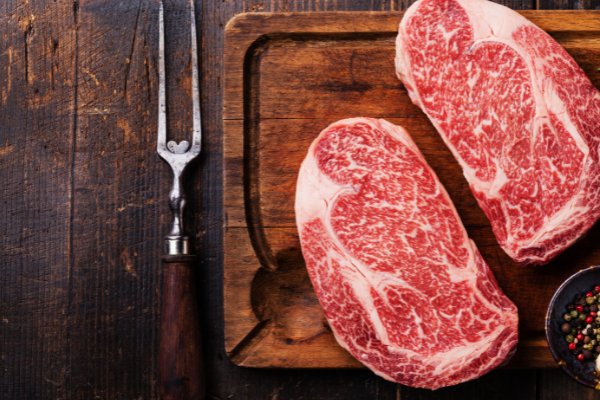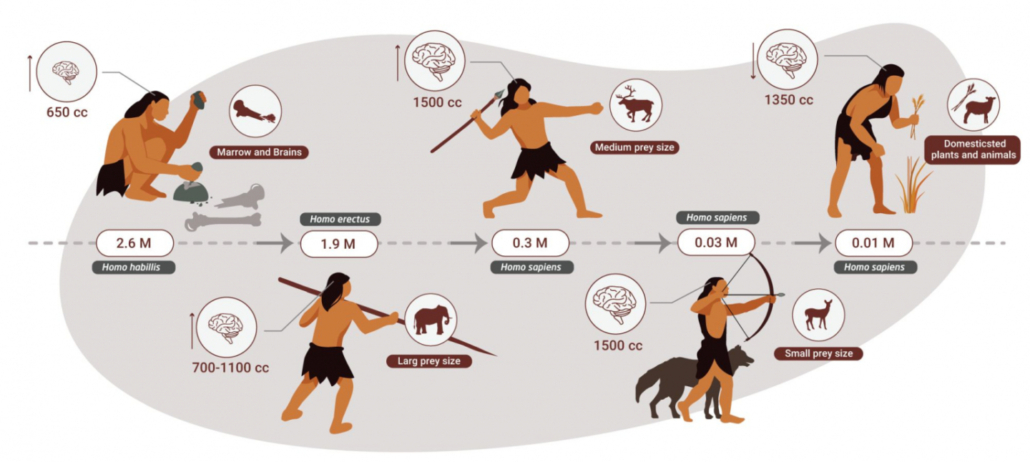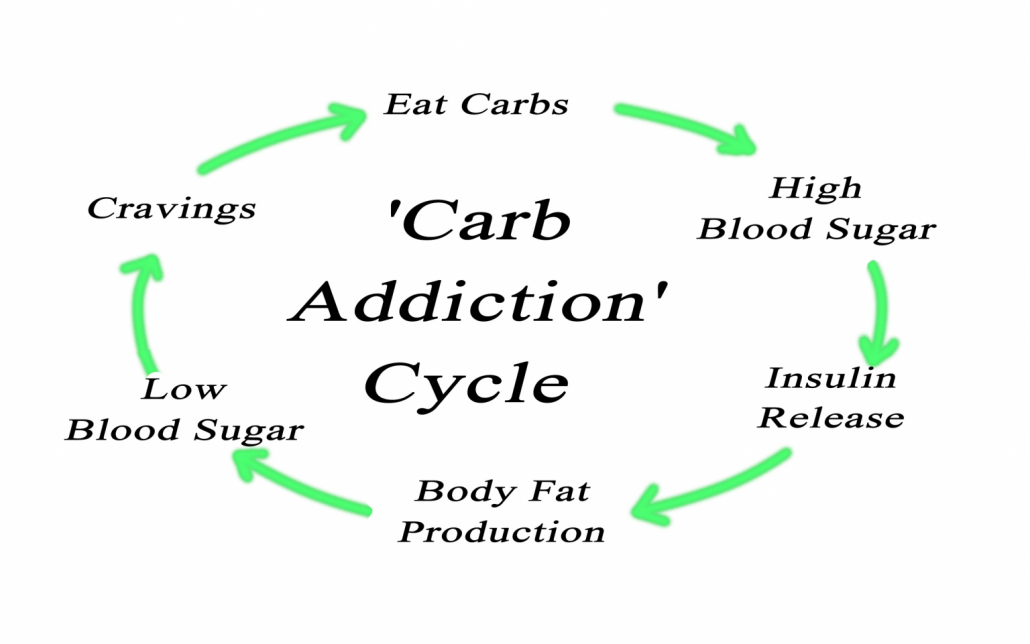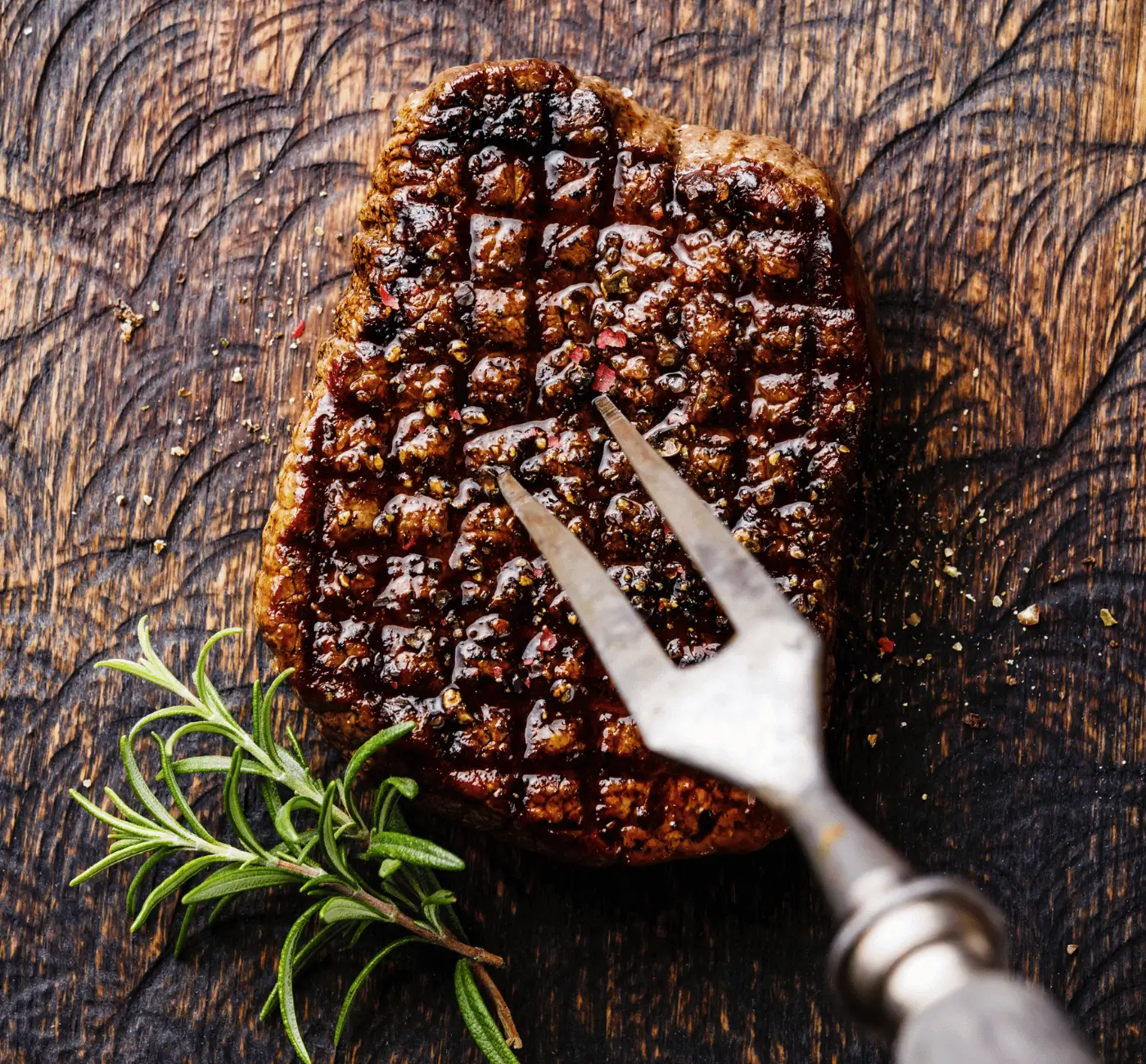
The carnivore diet is, by default a high-fat, low-carb way of eating–meat is essentially a zero-carb food. Yet because we’ve been trained by nutritional misinformation to fear fat, many people suffer the pitfall of eating too little fat on the carnivore diet. When you’re not getting enough fat on carnivore, a slew of issues can arise, including the uncomfortable and potentially dangerous symptoms of protein poisoning.
In this artilce, we’ll take a closer look at what happens when you’re not getting enough fat on carnivore, and some easy tips to help you boost your fat intake.
The human body is ruled by metabolic constraints when it comes to the percentage of calories we can get from protein.
When you cut carbs to less than 10% of your diet–as is the case for nearly every carnivore dieter– you need to get at least 70-80% of your calories from fat. only Only 10-30% of caloreis come from protein.
Not getting enough fat on the carnivore diet can result in various issues, including:

To better understand the repercussions of inadequate fat consumption on the carnivore diet, it’s vital to grasp the central role fat has played in human evolution and physiology.
For nearly two million years, preceding the advent of agriculture, humans thrived primarily on high-fat, low-carb diets. Our ancestors’ ability to flourish on fatty meats fueled the development of our larger brains, distinguishing us from our primate relatives.
Researchers like Miki Ben-Dor and Amber O’Hearn emphasize that our evolutionary history is deeply intertwined with a carnivorous diet rich in fatty animal products. This genetic predisposition for fat consumption is reflected in our bodies’ physiological makeup and metabolic preferences.

Source: Dr Miki Ben Dor
Getting more than 50% of your calories from protein will put you at risk for protein poisoning.
When the body metabolizes protein, it produces waste substances such as ammonia and urea. When not getting enough fat on carnivore, excessive protein can overwhelm the body’s ability to process and eliminate these waste products efficiently, leading to elevated levels of urea in the blood. High levels of urea can be toxic to the kidneys, which are responsible for filtering and excreting waste products.
Symptoms of protein poisoning include [3] :
In the early 1900s, Arctic explorer and Harvard trained ethnologist Vilhajlmur Stefansson spent years living with the inuit, where he learned to thrive on a traditional carnivore diet of mostly animal fats and organs.
Upon returning to America, Stefansson wanted to demonstrate the health benefits of the diet to a Western world that thought he was crazy.
To add legitimacy to his demonstration, Stefansson practiced the carnivore diet with a friend while under observation New York’s Bellevue hospital for a year.
During that year, there was only a single time that the men experienced illness, and it occurred when the doctors overseeing them asked them to experiment by eating only lean meat.
Not getting enough fat on his carnivore diet caused, as Steffanson described, “diarrhea and a feeling of general baffling discomfort.”
Fortunately, Steffanson and his friend quickly reversed their symptoms with one feast loaded with fatty beef brains fried in bacon fat alongside sirloin steak.
This situation led the observing doctors to declare that a ratio of 3 parts fat to 1 part protein was ideal on the carnivore diet. To this day, this ratio stands as the rule of thumb for all modern low-carb, high-fat diets.

For most people the most obvious manifestation of not getting enough fat on the carnivore diet will be digestive issues.
Carnivore constipation and diarrhea can both be addressed by increasing fat intake while making sure you’re getting enough water and salt.
Fat-soluble vitamins, including A, D, E, and the unique meat-specific vitamin K2, play crucial roles in supporting essential bodily functions such as immune response, hormonal balance, and gut health.
Vitamins A and D directly influence the production of bile acids, which are vital for metabolizing the increased fat consumption characteristic of a carnivore diet. These nutrients are predominantly obtained from meats rich in beneficial saturated fats.
One 2015 study found that 80% of participants with IBS, and over 30% of healthy participants were deficient in vitamin D. [5]
Given that many individuals turn to the carnivore diet to manage digestive issues like IBS, it’s plausible that they may already have insufficient levels of these essential fat-soluble vitamins.
The typical American diet is inundated with carbohydrates from processed grains and added sugars. Research suggests that carbohydrates can trigger neurotransmitters and activate the brain’s reward centers in a manner akin to addictive substances such as alcohol and cocaine.5
Carb addiction can contribute to a host of serious metabolic issues, including diabetes, infertility, heart disease, and various cancers.
Fortunately, unlike carbohydrates, fat consumed independently is not associated with addictive properties. In fact, fat has a satiating effect, meaning it helps us feel full for longer periods, reducing cravings for additional food.[6]
Not getting enough fat on the carnivore diet removes sugar without providing the satiety benefits of fat. This can intensify cravings for carbs, increasing the likelihood of indulging in highly processed and carb-laden junk food.

Though not getting enough fat can be a serious issue, on carnivore, it’s remarkably easy to increase your fat intake.
Build your meals around fatty cuts of meat, including
Cook and slather your meats in animal fats, including
The carnivore diet is essentially a zero carb way of eating. When reducing carbohydrates, not getting enough fat can lead to potentially serious issues stemming from an excessive reliance on protein.
The human body has a finite capacity to derive energy from protein, typically between 35% and 50% of total caloric intake. Exceeding this threshold can lead to a condition known as protein poisoning and digestive discomforts such as diarrhea, bloating, and constipation.
Furthermore, insufficient fat intake deprives the body of a highly satiating nutrient, potentially exacerbating cravings for carbohydrates, particularly during the initial phases of adopting the carnivore lifestyle.
.png)
.png)
We’re a global community of seekers, healers, and doers committed to reclaiming health on our own terms. When you join the Kiltz Mighty Tribe (KMT), you’ll gain access to education, support, and collective wisdom.


